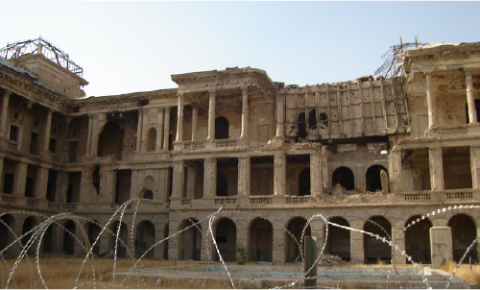Should protecting cultural heritage ever come before preserving human life?

Professor Derek Matravers’ research has helped the international heritage professionals, policymakers, military leaders and Non-Governmental Organisations (NGOs) the ethics of protecting cultural heritage in warzones.
In addition to World War II’s enormous humanitarian toll, it also destroyed a vast amount of cultural heritage, from historic buildings to great works of art.
“In the wake of this devastation, United Nations Educational, Scientific and Cultural Organisation (UNESCO) drew up the 1954 Hague Convention for the Protection of Cultural Property in the Event of Armed Conflict”, Professor Matravers explains. “The treaty obliges member states to take every feasible alternative to avoid damaging cultural property during conflict. Contravention is a war crime.”
However, the Convention’s language, the philosopher argues, is too vague and wildly open to interpretation. “Unfortunately, the treaty itself and subsequent UNESCO statements are ambiguous when it comes to choosing between protecting human life and preserving cultural heritage. Rather than providing specific guidance to determine what every feasible alternative to avoid damaging cultural property means, they rely instead on the idea that the two are inseparable. In practice, this means military personnel may take actions which needlessly destroy cultural property or result in loss of life while trying to follow the law.”
Matravers has argued the moral case against equating the protection of people with the preservation of cultural heritage in high-profile workshops with NGOs seeking to lobby the UN to expand the definition. He has also led training sessions for army cadets, military officers and cultural property protection professionals from the UK, United States, and Norway to help those on the front line understand the depth, complexity and weight of these moral issues on the battlefield.
Still, the philosopher acknowledges that war pushes us to the limits of human morality. “We must consider these issues in the context of war, which itself should only happen when it is the lesser evil of many bad options. By this standard, many of today's conflicts - as exemplified by the desperate situation in Ukraine - are fundamentally immoral and unjust.”
Request your prospectus
![]()
Explore our qualifications and courses by requesting one of our prospectuses today.
